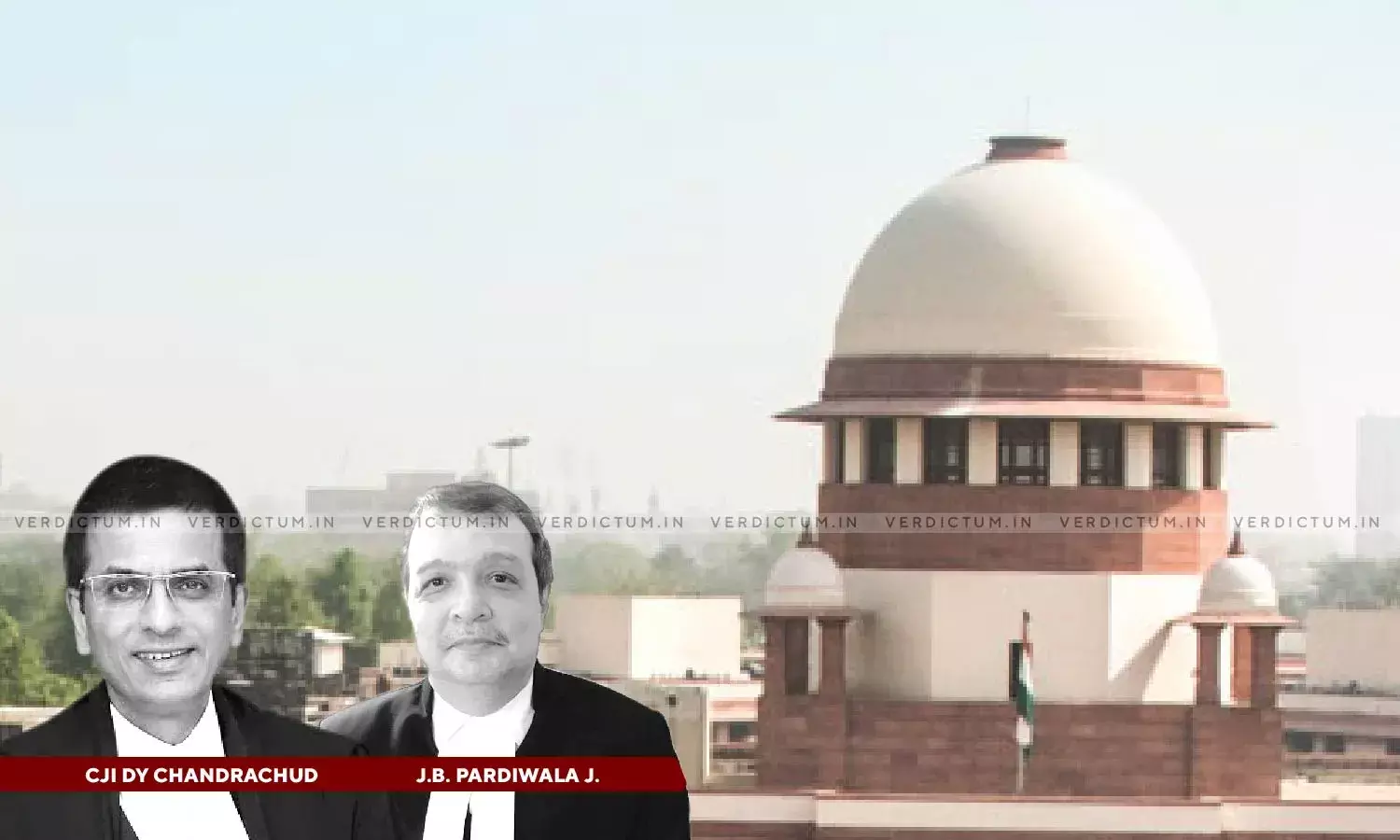Borrowers Who Fail To Pay Dues Before Auction Notice Cannot Redeem Mortgage Under SARFAESI Act- Supreme Court

A Supreme Court Bench of CJI DY Chandrachud and Justice JB Pardiwala has observed that a borrower who fails to pay dues before auction notice cannot redeem mortgage.
Highlighting the statutory position after the 2016 amendment to the SARFAESI Act, the Court observed that hat after an auction is concluded, borrowers internally relinquish their right to redemption under Section 13(8) of the Act.
In that context, it was said that, "We are of the view that the failure on the part of the borrower in tendering the entire dues including the charges, interest, costs etc. before the publication of the auction notice as required by Section 13(8) of the SARFAESI Act, would also sufficiently constitute extinguishment of right of redemption of mortgage by the act of parties as per the proviso to Section 60 of the Act 1882. Furthermore, in the case on hand, there was no claim for right of redemption by the borrower either before the publication of the auction notice or even thereafter. The borrowers entered into the fray only after coming to know of the confirmation of auction. Be that as it may, once the Section 13(8) stage was over and auction stood concluded, it could be said that there was an intentional relinquishment of his right of redemption under Section 13(8), whereby the Bank declared the appellant as the successful auction purchaser having offered the highest bid in accordance with the terms of the auction notice."
Senior Advocate Mukul Rohatgi and Senior Advocate Neeraj Kishan Kaul appeared for the appellant-auction purchasers, while Senior Advocate Shyam Divan and Senior Advocate Nikhil Nayyer appeared for the borrowers.
In this case, the appellants approached the Apex Court against a Bombay High Court ruling which had allowed the borrowers to redeem the mortgage of a secured asset even after the auction proceedings had attained finality.
The guarantor failed to repay a bank loan of ₹123.83 crores provided as lease rental discounting credit. As a result, the bank initiated the process of auctioning the secured assets of both the borrower and the guarantor under the SARFAESI Act (Securitisation and Reconstruction of Financial Assets and Enforcement of Security Interest Act). However, the auction process was not completed.
Meanwhile, the borrowers raised a Securitisation Application with a Debts Recovery Tribunal (DRT) in Mumbai. They challenged the demand notice issued to them under Section 13(2) of the SARFAESI Act and sought to cancel the sale notice.
Subsequently, the auction of the asset took place. Following this, the borrowers approached the High Court, requesting the redemption of their mortgage. The High Court granted their request and allowed for the mortgage to be redeemed.
The Apex Court reached the following conclusions:
(i) The High Court was not justified in exercising its writ jurisdiction under Article 226 of the Constitution more particularly when the borrowers had already availed the alternative remedy available to them under Section 17 of the SARFAESI Act.
(ii) The confirmation of sale by the Bank under Rule 9(2) of the Rules of 2002 invests the successful auction purchaser with a vested right to obtain a certificate of sale of the immovable property in form given in appendix (V) to the Rules i.e., in accordance with Rule 9(6) of the SARFAESI.
(iii) In accordance with the unamended Section 13(8) of the SARFAESI Act, the right of the borrower to redeem the secured asset was available till the sale or transfer of such secured asset. In other words, the borrower’s right of redemption did not stand terminated on the date of the auction sale of the secured asset itself and remained alive till the transfer was completed in favour of the auction purchaser, by registration of the sale certificate and delivery of possession of the secured asset. However, the amended provisions of Section 13(8) of the SARFAESI Act, make it clear that the right of the borrower to redeem the secured asset stands extinguished thereunder on the very date of publication of the notice for public auction under Rule 9(1) of the Rules of 2002. In effect, the right of redemption available to the borrower under the present statutory regime is drastically curtailed and would be available only till the date of publication of the notice under Rule 9(1) of the Rules of 2002 and not till the completion of the sale or transfer of the secured asset in favour of the auction purchaser.
(iv) The Bank after having confirmed the sale under Rule 9(2) of the Rules of 2002 could not have withhold the sale certificate under Rule 9(6) of the Rules of 2002 and enter into a private arrangement with a borrower.
(v) The High Court under Article 226 of the Constitution could not have applied equitable considerations to overreach the outcome contemplated by the statutory auction process prescribed under the SARFAESI Act.
In light of the same, the Apex Court allowed the appeals.
Cause Title: Celir LLP vs Bafna Motors (Mumbai) Pvt. Ltd. & Ors.
Click here to read/download the Judgment

